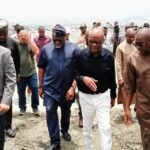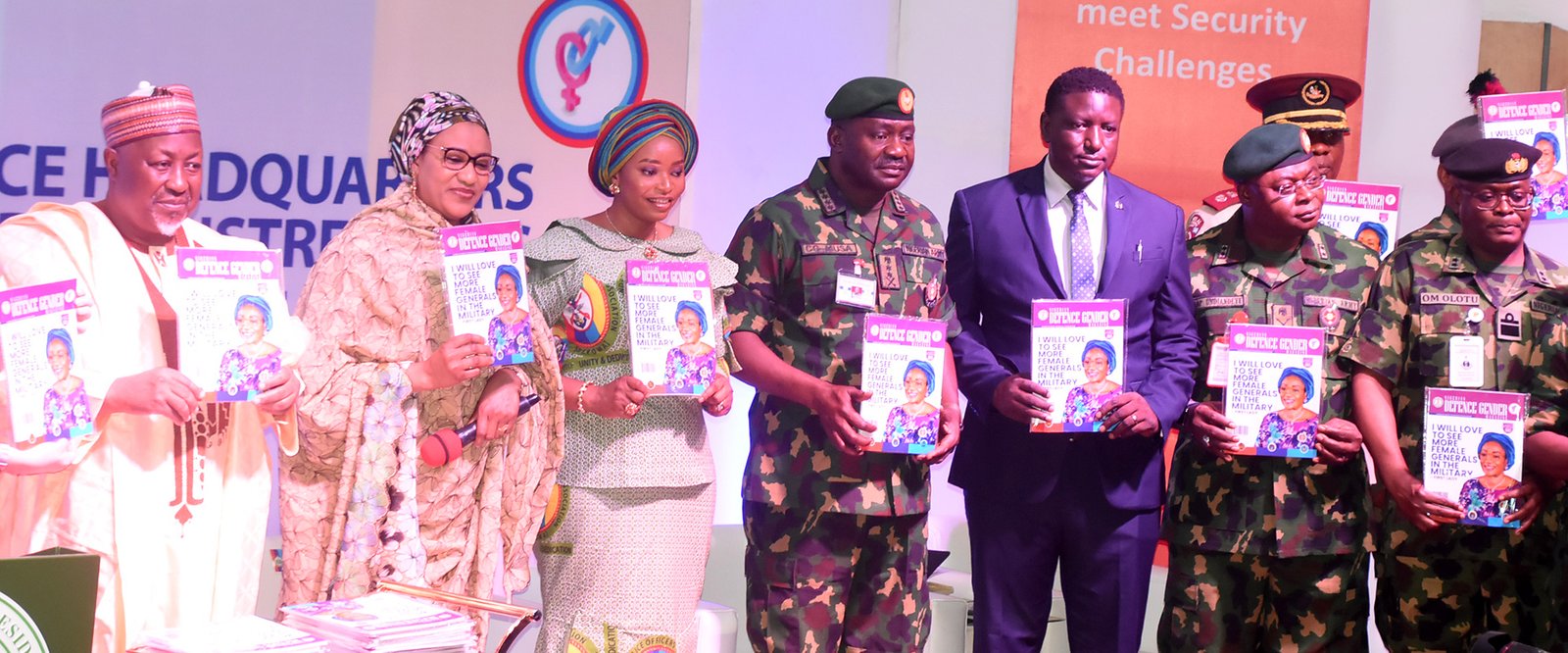By Sumaila Ogbaje
The Chief of Defence Staff (CDS), Gen. Christopher Musa, says the Armed Forces of Nigeria has attained 27.9 per cent female participation in peace support operations as against the 17 per cent benchmark recommended by the United Nations.
Musa made this known at a one-day gender Mainstremming Conference with the theme: “Building Capacity Through Gender Mainstremming to meet Security Challenges” organised by the Defence Headquarters on Thursday in Abuja.
He said the Nigerian military had received encomium from notable international organisations, such as the UN and the Africa Union for adopting commendable gender mainstreaming policies in all its operations conducted within and outside the shores of Nigeria.
“As available record reveals that Armed Forces of Nigeria have been able to attain 27.9 per cent female participation in peacekeeping operations, surpassing the 17 per cent recommended benchmark by the United Nations.
“These deliberate efforts by the military is in line with the United Nations Security Council Resolution 1325, mandating countries to develop own action plans to identify, evaluate and control efforts to achieve the objectives of Women, Peace and Security.
“The UN Security Council Resolution 1325 was mooted to ensure women and societal security needs are safeguarded through increased emphasis on prevention, protection and participation of women in military operations,” he said.
The CDS said the conference was also tailored at fashioning out the right ambience for the armed forces in designing, implementing, monitoring and evaluating operational and administrative doctrines that would promote and enhance their capacity to combat the myriads of security challenges.
He said the asymmetric nature of current security challenges bedeviling the nation brings to bear the need for the military and other security agencies to adopt a more realistic gender mainstreaming strategy to defend and protect women and children during crisis.
He urged the participants and stakeholders to be open minded by engaging in constructive discussions that would further improve the existing gender policies and gender mainstreaming in the military.
Musa reiterated that the armed forces under his command would remain focused in championing gender based doctrinal policies both in its operations and other engagements.
The UN Deputy Secretary-General, Amina Mohammed, commended the Federal Government for its continued efforts towards promoting gender mainstreaming in the nation’s armed forces.
Mohammed said the conference was apt in building on the Gender Policies for the Armed Forces of Nigeria launched in 2021, adding that Nigeria, like many other nations, faces many security challenges, both at the national and regional levels.
She said the UN would continue to support the federal government in its efforts to deepen gender inclusiveness and bridge the gender gaps in the armed forces.
She said the challenges had far reaching consequences, particularly for the most vulnerable members of society such as women and children.
According to her, the Nigerian Armed Forces continued to play pivotal roles in both preventing and responding to those security challenges while upholding human rights and safeguarding the national security.
“Gender mainstreaming is crucial to the peace process during and after conflict because it sits at the heart of our Sustainable Development Goals.
“Study after study has demonstrated that when we strengthen women’s resilience and leadership, everyone benefits, including men and boys.
“Women are more likely to foster inclusive modes of governance and coexistence, more likely to build peace and silence against, and more likely to invest in sustainable development and a cornerstone of peaceful, prosperous communities and societies.
“Women’s active participation and leadership at all levels is essential to building an inclusive, responsive, and accountable armed forces that reflects the diversity of the community service and better response to their needs,” she said.
The British Deputy High Commissioner to Nigeria, Gill Atkinson, said the role of women in policy making in the defence, insecurity and operational frontline had grown and become steadily more important.
Atkinson said the UK and Nigeria had adopted and domesticated UNSCR 1325, which made the role of women in peace and security fundamental to the future of the nations’ defence and security.
She said that Nigeria had shown its commitment to the resolution in many ways such as in the protection of survivors of sexual violence, supporting the call to action to ensure the rights and wellbeing of children born of sexual violence in conflict.
According to her, inclusive military and security organisations are key to helping them meet the standards set out in these agreements.
“But I think it’s important too that we understand and pay tribute to the women at the grassroots who are working with their communities and upwards through the system to bring peace and security, reconciliation and support both the women and the men in their communities.
“We must make sure that gender considerations are fully integrated into policy, practices and operational environment and the armed forces can lead the way,” she said. (NAN) (www.nannews.ng)
Edited by Rabiu Sani-Ali








